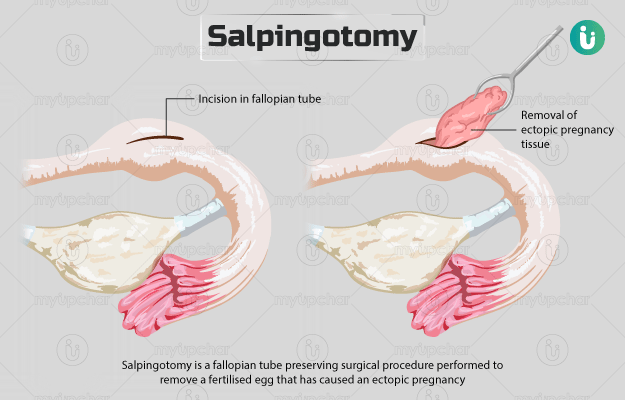Summary
Salpingotomy is a surgical procedure performed to remove the product of an ectopic pregnancy from the fallopian tube (the tube that connects the egg-producing ovaries to the uterus) without removing the fallopian tube itself.
Ectopic pregnancy is a condition wherein a fertilised egg is implanted outside the uterus, most commonly in the fallopian tube. A fertilised egg is not able to develop outside the womb and can even put the health of the woman at risk. Your surgeon will recommend this procedure if your blood has a high human chorionic gonadotropic level or if medications have failed to resolve the condition. The surgery is performed under general anaesthesia and can last for 30 minutes or longer. You will be discharged from the hospital in one to two days following the operation. The procedure will increase your chances of having a child in the future.






































